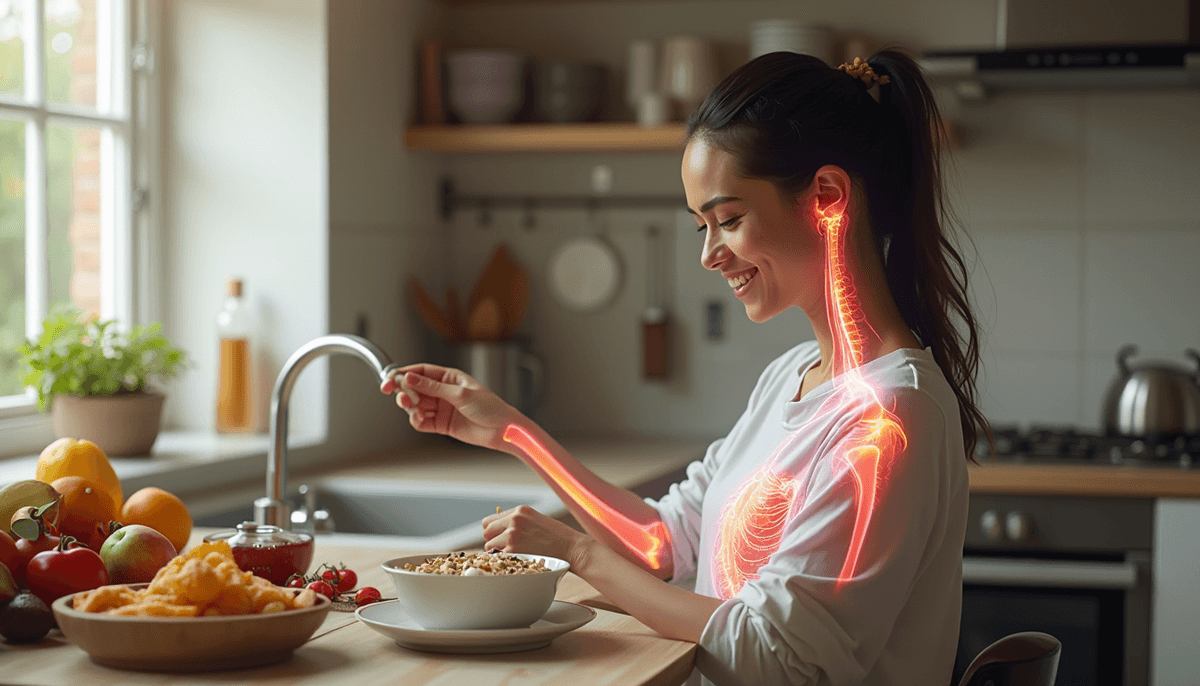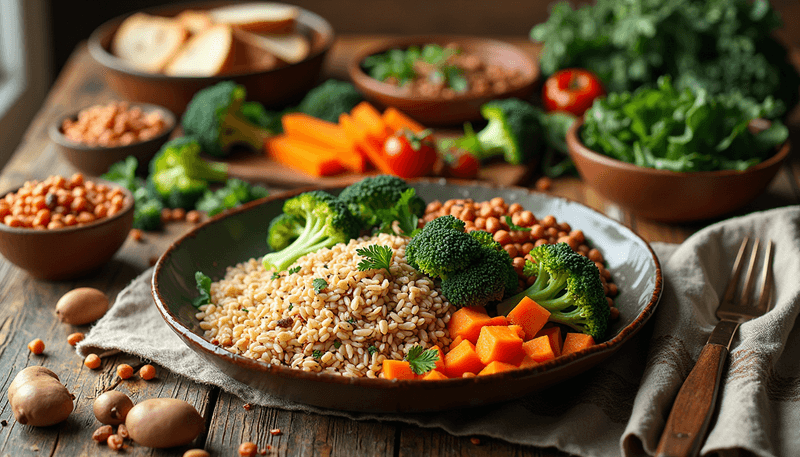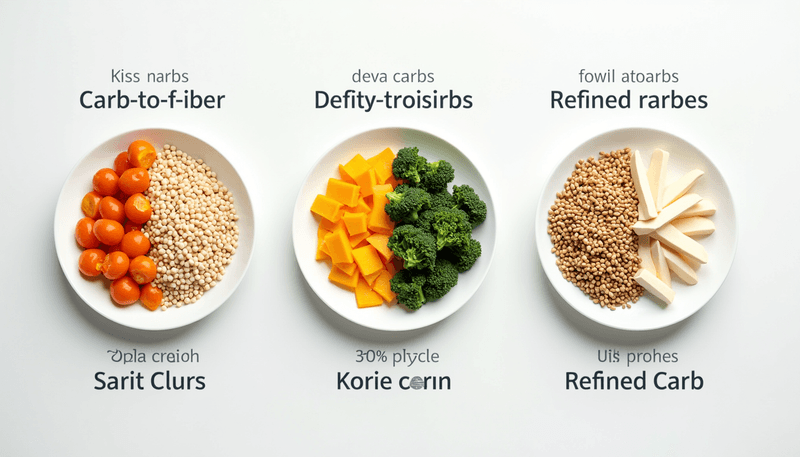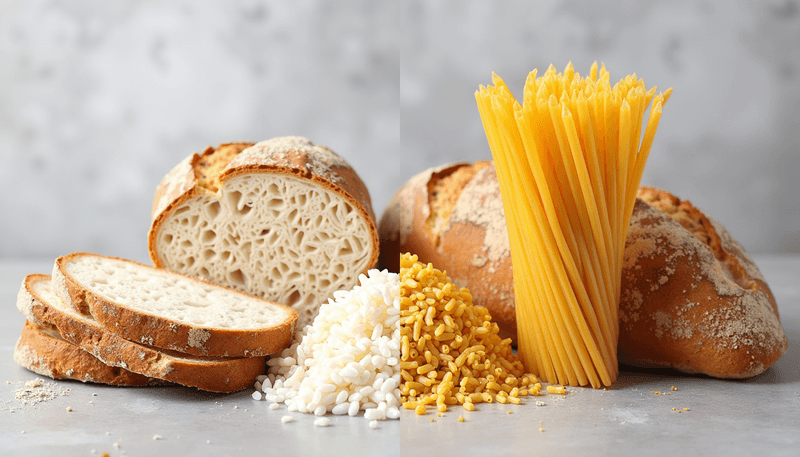Right Carbs Help Keep Bones Strong

Your morning bagel or bowl of oatmeal might be doing more than just satisfying your hunger - it could be influencing your bone health in ways you never imagined. A groundbreaking study published in PLOS ONE reveals that the relationship between carbohydrates and dietary fiber in our food plays a significant role in maintaining strong bones, especially for women after menopause.
The Magic Number: Finding Your Carb-Fiber Balance
Here's something fascinating: the research shows that when the ratio of carbohydrates to fiber in your diet exceeds 17.09, your risk of developing osteoporosis increases significantly. Think of it like a seesaw - when there's too much refined carbohydrate weight on one side without enough fiber to balance it out, your bone health might tip in the wrong direction.
"But what does a ratio of 17.09 actually mean in real life?"
Let me break it down with a practical example: If you consume 200 grams of carbohydrates in a day, you'd want at least 11.7 grams of fiber (200/17.09) to stay below this threshold. This isn't just about eating less bread or pasta - it's about making smarter choices about the types of carbohydrates you consume.
The Power of Fiber in Building Stronger Bones
The study revealed something remarkable: women who consumed more than 17.65 grams of fiber daily had a 53% lower chance of developing osteoporosis compared to those who ate less than 10.93 grams. This isn't just a coincidence - there's solid science behind it.
Dietary fiber works in multiple ways to protect your bones:
- It helps your body absorb minerals like calcium more effectively
- It reduces inflammation that can harm bone density
- It supports beneficial gut bacteria that promote bone health
Have you checked how much fiber you're getting in your daily diet?
Practical tip: Start your day with a bowl of steel-cut oats (4g fiber) topped with berries (3g fiber) and a tablespoon of chia seeds (5g fiber). Just like that, you're already halfway to the beneficial amount!
Quality Over Quantity: Choosing the Right Carbohydrates
One of the most valuable insights from this research is that it's not just about how many carbohydrates you eat - it's about their quality. The study found that women consuming between 168.6 and 232.19 grams of carbohydrates daily, along with adequate fiber, showed better bone mineral density.
Here's how to put this into practice:
-
Replace refined grains with whole alternatives:
- Switch white bread for whole grain bread
- Choose brown rice over white rice
- Opt for whole wheat pasta instead of regular pasta
-
Add fiber-rich foods to every meal:
- Include vegetables with both lunch and dinner
- Snack on fruits and nuts
- Add beans or lentils to soups and salads
"What small change could you make today to improve your carb-fiber balance?"
As we wrap up, let's acknowledge that changing eating habits isn't always easy. But considering that this research shows such a clear connection between our dietary choices and bone health, even small changes can make a meaningful difference.
Your next step: Look at your next meal and find one way to add more fiber while reducing refined carbohydrates. Could you swap that white toast for whole grain? Add some beans to your salad? Every small choice adds up to better bone health over time.
The question isn't whether to make changes, but which change will you start with today?

Amelia Grace Okonkwo
Amelia Grace Okonkwo is a freelance health writer and author with over 15 years of experience in health journalism, specializing in women's health and autoimmune disorders. With a background in biology and a Master’s in Public Health from Johns Hopkins, she combines scientific accuracy with a storytelling approach to make health information accessible and empowering. Amelia is known for her bestselling book, "The Skin We're In," which explores autoimmune disorders and their impact. She is passionate about delivering practical health insights for women, addressing topics from midlife wellness to mental health.







